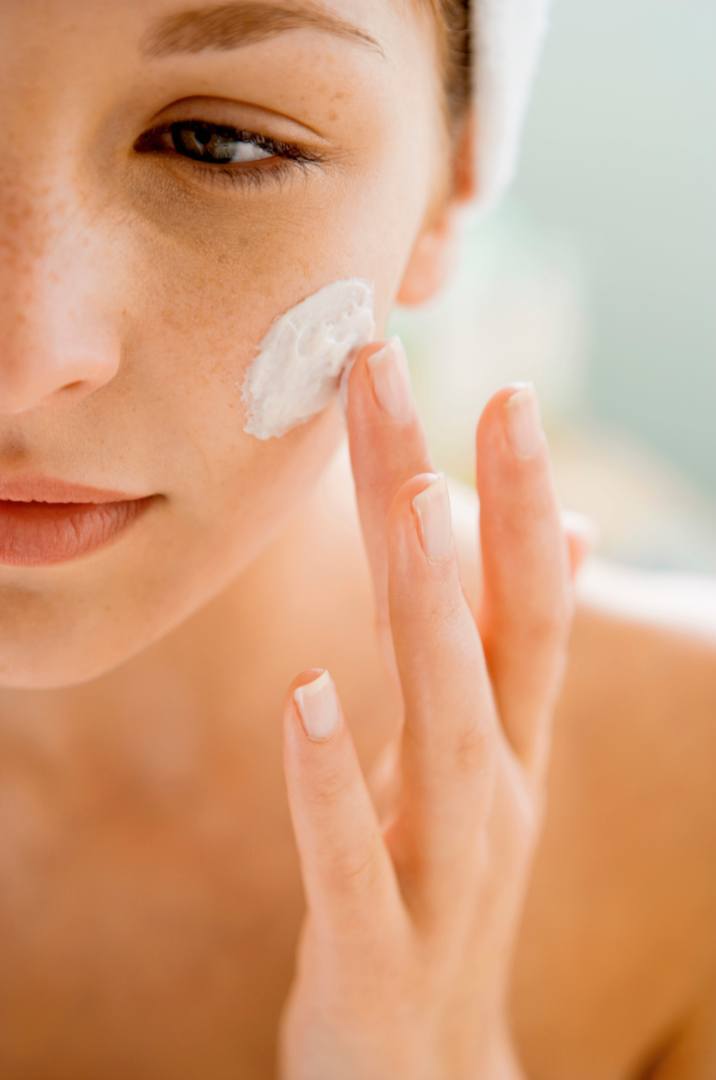

Dealing with any skin condition—psoriasis, rosacea, or acne—can be tricky, frustrating, and confusing. Eczema is no different, especially if it's your face (so easily exposed to potentially provoking products and the environmental instigators) versus other body parts.
If you're dealing with eczema, you're far from alone.
According to the National Eczema Association, roughly 31.6 million people in the United States have been diagnosed with some form of eczema. Of course, any skin condition—eczema included—is far more complex than just keeping the skin clean and hydrated, so we’re going to set the record straight regarding face eczema.
We still recommend an appointment with a dermatologist IRL, but this should at least help in the interim. Keep scrolling for all of the best advice on how to treat eczema on your face.
What Is Eczema?
Eczema is an umbrella term for skin conditions that can cause the skin to become red, itchy, and inflamed. The word eczema is often used when talking about atopic dermatitis, the most common type of eczema. It's important to know that patients with atopic dermatitis have an impaired skin barrier, meaning their skin doesn't hold water like it's supposed to, which causes the condition's signature flakes and dryness.
Eczema, also called atopic dermatitis, is a condition that causes inflammation in the skin, making it dry, red, and itchy. It’s most common in children but can occur at any age and tends to be a chronic skin condition that can be managed but not cured. It is associated with asthma and hay fever and tends to occur in families.
While eczema can have a genetic component, a variety of things cause or worsen it, such as our environment and how our immune system responds. It’s also important we point out that while diet and certain foods don't directly cause eczema, food allergies can often make atopic dermatitis worse—another reason to visit your doc ASAP if you know or think you might be suffering from eczema.
Eczema on the Face vs the Body
Even though the consensus is that the general signs and symptoms of eczema will be the same regardless of where it appears on your body—face included—there are key differences to be aware of. Eczema can affect any part of the body, most commonly the bends of the arms and legs, the hands and the neck. But it can also affect the face, usually on the cheeks. The presentation is the same – dry, red, itchy patches that start to thicken the skin the longer it's present, and the more scratching occurs.
Facial eczema can be more challenging to manage since the skin is more sensitive, and we tend to apply more products that might trigger a flare-up. This, for example, would require a different treatment strategy than a type of eczema on the hands called pompholyx or dyshidrotic eczema which presents itself as deep-seated blisters.
"You can also get nummular eczema, which looks like a coin-shaped rash on the body. Plus, since many people with eczema scratch and rub the areas affected, it's not uncommon for the skin to appear thickened or sometimes darker in some areas of the body and face than others.
How Can You Treat Eczema on the Face?
If a trigger for your eczema can be identified, it should be eliminated. Not sure where to start? A common trigger is foods (think typical allergens like eggs, dairy, or nuts), fabrics (wool or man-made fibers), or skin irritants (perfume, makeup, or skincare products).
Unfortunately, some triggers are hard to treat because they are tied to your genetics or where you live. For instance, northern latitudes are a trigger. Secondly, the itching symptoms of eczema should be treated to avoid worsening the inflammation. Non-aggressive steroids such as hydrocortisone 1% cream are a good place to start to calm irritation, and depending on your results, you can seek further treatment options with your doctor.
Of course, choosing gentle, non-inflammatory skincare is key if you're looking to reduce the chances of a flare-up. Oh, and investing in an at-home humidifier.
What Should You Avoid?
When caring for eczema, anything harsh, irritating, or over-exfoliating is considered a foe. Specifically, avoid sulfates, alcohol, and fragrances in addition to at-home peels or pads and alcohol-based toners. Avoiding inflammatory food like sugar and dairy is also strategic in minimizing the chance for flare-ups.
Be careful with over-exfoliation, as that can lead to dryness, which can trigger eczema. Allergens in the environment can even cause an eczema flare. Eczema can worsen with certain eye makeup and makeup-removing products. It’s best to avoid makeup wipes since most contain fragrance and alcohol and instead use a gentle makeup remover or micellar water to remove makeup.It’s also recommended avoiding hot water when washing your face and instead using cool water, as it's less drying and less irritating.
Ingredient-wise, look for soothing ingredients when choosing your skincare picks and suggests calming, natural choices like manuka honey, turmeric, aloe, and witch hazel as non-irritating alternatives.
What Are the Best Products for Eczema on the Face
The ideal evening skincare routine for someone with eczema flare-ups on their face would start with gentle cleansing, followed by a low-inflammation nighttime moisturizer, which can even be as simple as pure coconut oil. But that would be a little messy for your bed, right? So check out Wild Naturals, with ingredients consisting of coconut oil, shea butter, carrot seed oil, manuka honey, and much (minus fragrances, mineral oil, and harsh preservatives) more!
The eczema on your face won’t know what hit them when you see the nourishing and healing results from our Eczema & Psoriasis products!


